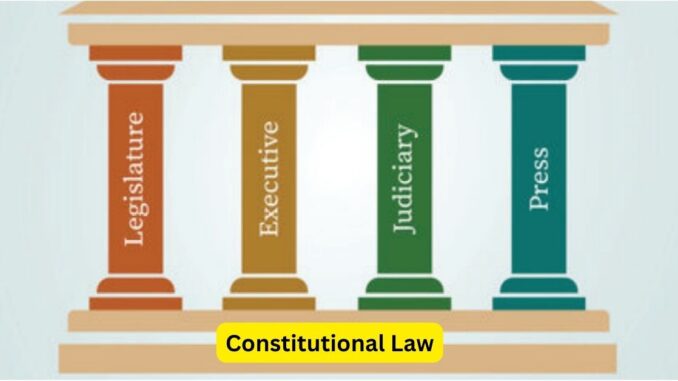
Constitutional law stands as the cornerstone of democratic societies, serving as the bedrock upon which individual freedoms, rights, and the rule of law are established and protected. It encompasses a set of principles and guidelines derived from a nation’s constitution, shaping the legal framework that governs the relationship between the government and its citizens. At its core, constitutional law is instrumental in safeguarding individual freedoms and ensuring a just and equitable society.
1. Protection of Basic Rights:
Constitutional law guarantees fundamental rights and freedoms to individuals, such as freedom of speech, religion, and assembly. These rights serve as a shield, safeguarding citizens from governmental intrusion and ensuring their ability to express opinions, practice their faith, and assemble peacefully. By outlining these rights explicitly, constitutional law creates a framework that fosters tolerance, diversity, and social cohesion.
2. Balancing Powers:
Constitutional law establishes the separation of powers among the executive, legislative, and judicial branches of government. This separation acts as a check and balance system, preventing the concentration of power in any one branch and ensuring that each branch operates within defined limits. By upholding this balance, constitutional law protects citizens from potential abuses of authority, promoting transparency, accountability, and the rule of law.
3. Ensuring Fair Legal Procedures:
Constitutional law guarantees fair legal procedures, such as the right to a fair trial and protection against double jeopardy. These provisions ensure that individuals are treated justly within the legal system, emphasizing the importance of due process. By upholding these rights, constitutional law serves as a shield against arbitrary arrests, unfair trials, and wrongful convictions, preserving the integrity of the legal process.
4. Safeguarding Minority Rights:
Constitutional law plays a pivotal role in protecting the rights of minorities, ensuring that their voices are heard and their interests are represented. By establishing equal protection under the law, regardless of race, ethnicity, gender, or other characteristics, constitutional law fosters inclusivity, diversity, and social harmony. It serves as a beacon of hope, advocating for marginalized communities and defending their rights against discrimination.
5. Fostering Social Progress:
Constitutional law adapts to societal changes, reflecting the evolving values and norms of a nation. As societies progress, constitutional amendments and interpretations can expand rights, promoting social progress. Landmark decisions often shape cultural attitudes and pave the way for increased inclusivity, equality, and individual freedoms.
In conclusion, constitutional law stands as a guardian of individual freedoms, preserving the essence of democratic societies. By upholding fundamental rights, balancing powers, ensuring fair legal procedures, safeguarding minority rights, and fostering social progress, constitutional law reinforces the principles of justice, equality, and freedom. Its enduring significance lies in its ability to adapt, evolve, and champion the rights and liberties of every citizen, ensuring that democratic nations remain steadfast in their commitment to a just and inclusive society.
Leave a Reply